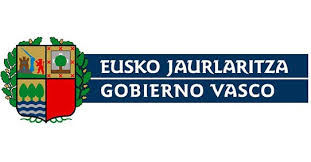“TECNALIA is coordinating the PREBIO2 initiative, which is an opportunity for the Basque Country to work towards the objectives of the (Basque) Green Deal”
Biodegradable and renewable polymers using CO2 emissions and biomass as a raw material
An increasing amount of plastic waste and CO2 emissions are among the biggest challenges facing society today in the transition to a circular, carbon-neutral economy. The PReBIO2 initiative, led by TECNALIA, offers a solution to both problems: creating biodegradable and renewable polymers using CO2 emissions and biomass as raw materials.
The basic research project PReBIO2 Renewable, BIOdegradable and BIOcompatible polycarbonates from CO2 for strategic sectors in the Basque Country aims to generate knowledge for the development and validation of new polymers from CO2 and biomass. They should use more sustainable materials in strategic sectors of the Basque Country such as agriculture, health and smart industry.
Although the production of plastic from renewable materials and biomass is increasing every year, according to the European Bioplastics Partnership (EUBP) only 1.5% of the plastic produced annually globally are biobased; in Europe this percentage is 1.3 % (Plastics, The Facts 2022 report).
As the plastics that are produced today are fossil-based, the European plastics sector is facing a challenge if it wants to achieve the goals of net-zero emissions and circularity by 2050 in a sustainable way.
Development of fully renewable polycarbonates
PReBIO2 develops a new range of fully renewable polycarbonates; a type of polymer with multiple applications in different sectors. Currently, most polycarbonates are non-renewable, non-biodegradable and are derived from bisphenol A (BPA), a substance of concern because of its potential risk to human health (EFSA Food Safety Agency).
CO2-based polycarbonates are already on the market, but these are only partially renewable, as the rest of the raw materials used come from oil.
In addition to coordinating the project, TECNALIA is also in charge of the synthesis of polycarbonates: first the biobased monomers will be synthesised, and then they will be copolymerised with CO2 to create the polymers.
Once these polycarbonates have been obtained, their formulation and various processing techniques will be studied to obtain various types of materials such as:
- Films and small parts to be used as biodegradable plastic in agriculture
- Supports for cell cultures in the field of health
- Functional ink for the production of sensors
TECNALIA will also work on the development of an artificial intelligence algorithm that links the structure of the created polymers to their properties, in order to identify the optimal structure for each application.
Working towards the objectives of the Green Deal
PReBIO2 is an opportunity for the Basque Country to work towards the objectives of the (Basque) Green Deal.
As well as helping companies in the Basque Country to reduce CO2 emissions, it will make it possible to turn these emissions into raw materials. Together with the use of locally sourced biomass, it would help to reduce the impact of rising raw material prices in industry. The resulting polycarbonates will be renewable, biodegradable, biocompatible and non-toxic with a wide range of possibilities.
The following organisations are involved in PReBIO2: GAIKER, la UPV/EHU, BCMaterials, NEIKER, TECNALIA and ACLIMA.
With a budget of more than 600,000 euros and a duration of 2 years, PReBIO2 has received funding from the Elkartek Collaborative Research grant programme of the Basque Government’s Department of Economic Development, Sustainability and Environment.
